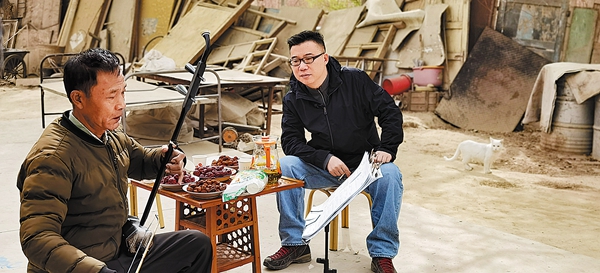Ticket to write
By Zhang Lei | China Daily | Updated: 2022-06-07 08:10

"Dunhuang is like a petrol station for me. Whenever I find my bones getting soft, or my aesthetics becoming faint, I travel to the northwest," he adds.
Li, born and raised in Wuhan, Hubei province, says he regards the northwest as his spiritual home.
He first went there around 2006 when he took a monthlong road trip with his friend. The desert scenery and the strong winds made a deep impression on him, he says.
"It's as though you're entering a new world and turning on some kind of new life force, making it feel like your spiritual home. You even opt for different words as you are writing. It really changed me," Li explains.
For a writer, or for anyone for that matter, one of life's assignments is to continuously rediscover oneself, he suggests.
The latest trip to Gansu inspired his writing anew, just as earlier visits had done, he says.
Li and Han once saw a man hitting samaras from an elm tree and stopped to talk to him. He invited them to his home and, outside, he served the fruit and told them about himself. He even sang a song for them, Li says.
"We would never have heard this story if we hadn't stopped and chatted to him," he notes.
Crossing the Gobi Desert by car, Li and Han talk about what a writer's mission is.
"The writer is the trumpeter in the vocal palace hall," Li says.
The function of literature is this, he says: "After reading other stories we realize that everybody else has gone through the same kinds of pain and met with the same kinds of joys that we have experienced, which proves we are not alone.
"Literature is like a wall behind our back, that we can lean against to have a rest."
Wang's views on the role of literature are similar to Li's, and he says he believes that, with words, writers comfort people.
"I've told myself that this era may not belong to writers, because it's a time of artificial intelligence and 5G."
However, he adds that, perhaps, this is the best time for writers for that very reason.
























